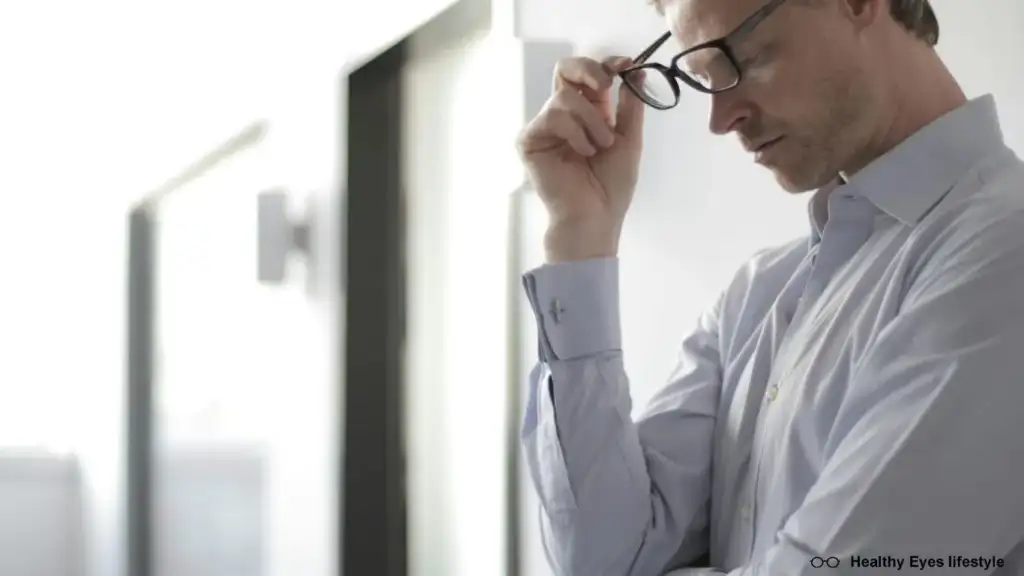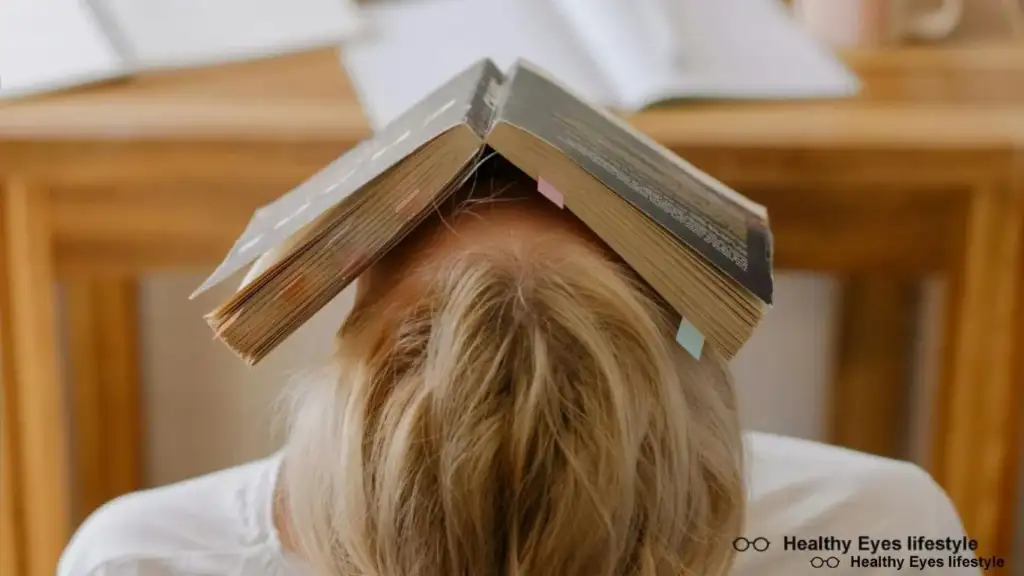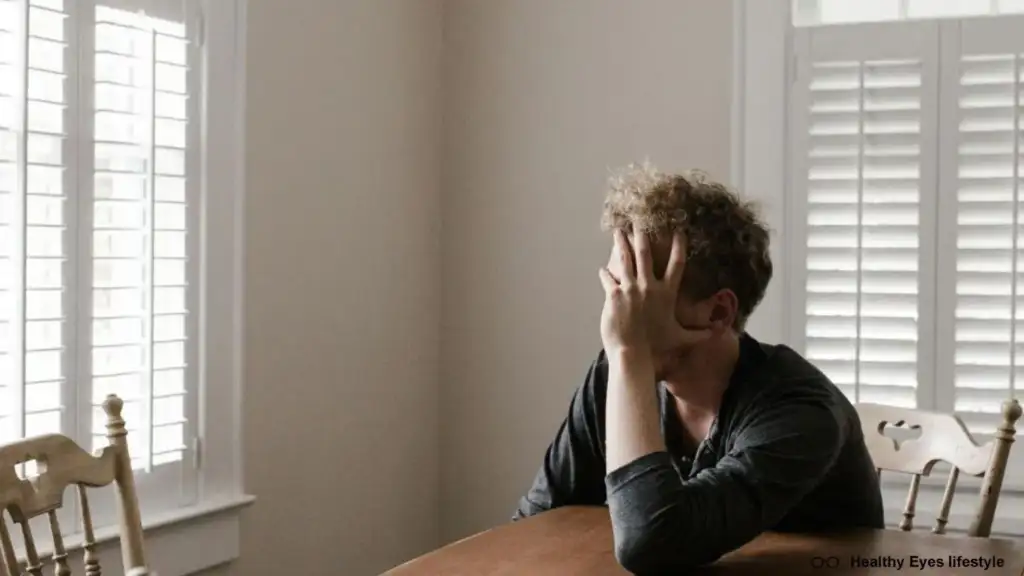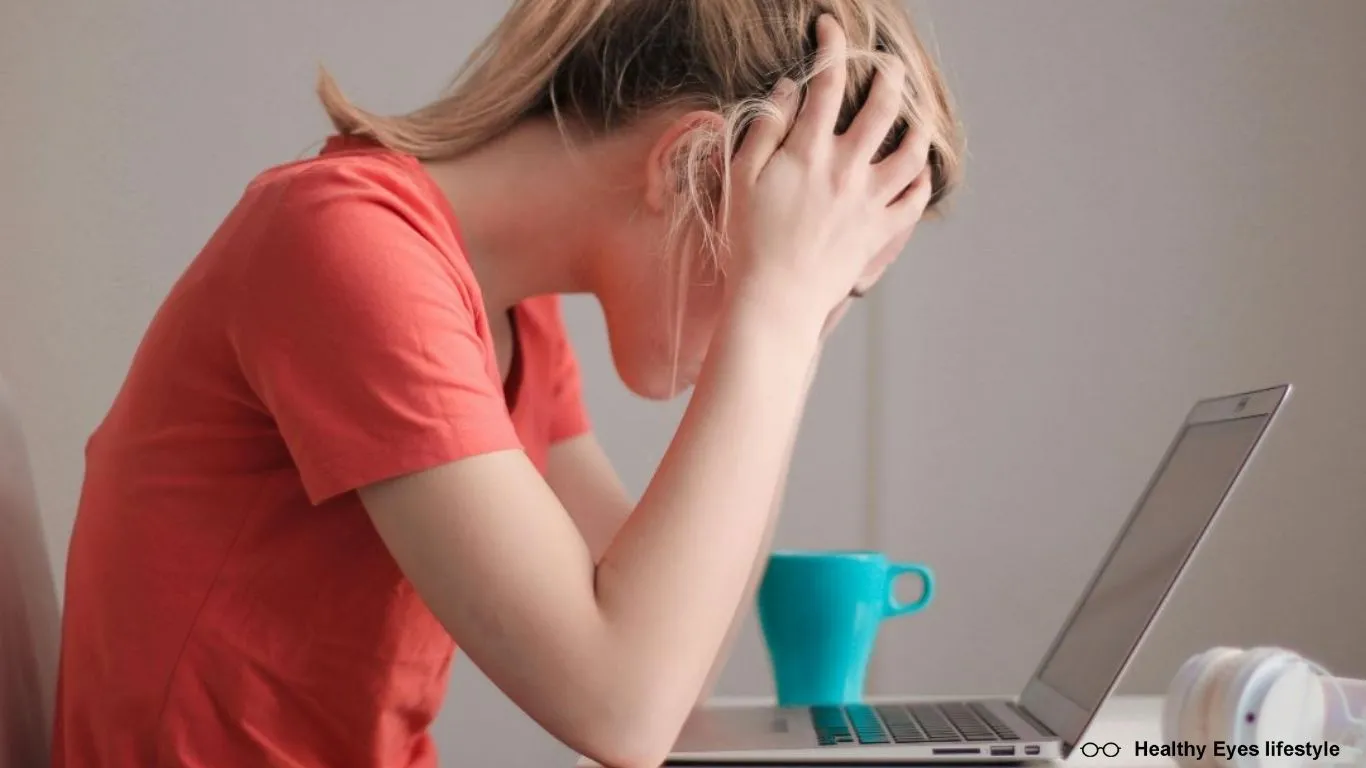Share This Article
Table of Contents
Anxiety is a natural emotional response to stress and is something most people experience at some point in their lives. However, when anxiety becomes chronic, it can lead to a wide range of physical symptoms, including those that affect your vision. Understanding whether anxiety can cause vision problems and how these issues manifest is essential, especially as more people face increasing stress and anxiety in today’s fast-paced world. This article explores the relationship between anxiety and vision problems, discussing how anxiety impacts visual health, the types of visual disturbances it can cause, and tips for managing these symptoms.
Understanding Anxiety and Its Physical Impact
Anxiety disorders are the most common mental health issues globally, affecting millions of people each year. While anxiety is often considered a mental or emotional issue, it can have profound physical effects on the body. Common physical symptoms include an increased heart rate, muscle tension, headaches, dizziness, and gastrointestinal issues. Less well-known, but equally significant, are the effects anxiety can have on your eyes and vision.
Anxiety triggers the body’s “fight or flight” response, releasing a surge of stress hormones such as adrenaline and cortisol. This physiological response prepares the body to deal with perceived danger by increasing alertness and blood flow to essential organs. However, prolonged activation of the fight or flight response can cause imbalances in your body, including effects on your vision.

Can Anxiety Cause Vision Problems?
Yes, anxiety can indeed cause vision problems. When you’re experiencing anxiety, your body undergoes a variety of changes that can affect your visual system. Stress hormones like adrenaline, released during periods of high anxiety, can influence how your eyes function and how well you can see. Although these vision problems are usually temporary, they can be unsettling and may exacerbate feelings of anxiety.
Here are some common ways anxiety can lead to vision problems:
- Blurred Vision
- One of the most frequent complaints among people experiencing anxiety is blurry vision. This happens because stress and anxiety can lead to muscle tension, including the muscles that control eye movement and focus. When these muscles become strained, your ability to focus on objects near or far away diminishes, resulting in blurred or distorted vision.
- Tunnel Vision
- During anxiety or a panic attack, the body focuses its energy on dealing with the perceived threat. As part of this process, your field of vision may narrow, causing what is known as “tunnel vision.” This type of vision problem occurs because the brain prioritizes looking straight ahead, reducing peripheral awareness to focus on the source of stress.
- Light Sensitivity (Photophobia)
- Anxiety can increase your sensitivity to light, a condition known as photophobia. This is because high levels of anxiety or panic can overstimulate your nervous system, causing the eyes to become overly sensitive to bright lights or glare.
- Eye Floaters and Flashes
- Anxiety can also increase your awareness of normal visual phenomena like eye floaters or flashes. Floaters are small, shadowy shapes that float across your field of vision, while flashes are brief bursts of light. These are generally harmless but can become more noticeable during periods of stress.
- Eye Strain and Fatigue
- Chronic anxiety can contribute to eye strain, especially if you spend long hours focusing on digital screens. This is because anxiety can make it difficult for your eyes to relax and refocus, leading to prolonged tension in the eye muscles and resulting in eye fatigue.
- Dizziness and Visual Disturbances
- Anxiety, particularly during a panic attack, can cause dizziness or lightheadedness. This, in turn, can affect your vision, making objects appear to move or shift. The sensation of being off-balance can make your visual perception feel unstable, causing temporary visual distortions.
- Double Vision (Diplopia)
- Severe anxiety can also lead to episodes of double vision, known as diplopia. This happens when the brain is overwhelmed with sensory information and struggles to merge the two images seen by your eyes into one cohesive picture.
- Twitching or Trembling Eyes
- Many people with anxiety report experiencing eye twitching, medically known as myokymia. This involuntary eye movement or tremor is a common stress response. Although it’s usually harmless, persistent twitching can be annoying and contribute to feelings of stress.
Table 1: Long-Term Vision Risks Associated with Chronic Stress
| Condition | Description |
| Glaucoma | Prolonged high eye pressure can damage the optic nerve, leading to glaucoma. |
| Macular Degeneration | Chronic stress can contribute to oxidative damage in the retina, increasing risk. |
| Cataracts | Stress-induced inflammation and oxidative stress can increase the risk of cataract formation. |
| Retinal Detachment | Stress-related hypertension can contribute to retinal vascular problems, increasing the risk of detachment. |
| Optic Neuropathy | Damage to the optic nerve due to chronic stress, leading to permanent vision loss. |
All of these diseases and symptoms occur in people who already suffer from this disease and stress increases the possibility of worsening the condition. In cases where there is no disease but there is a history, stress can develop the disease.

Anxiety and Vision: The Vicious Cycle
Vision problems caused by anxiety can lead to a vicious cycle. Visual disturbances, such as blurry vision or tunnel vision, can heighten feelings of worry and panic. This, in turn, increases anxiety levels, exacerbating the vision problems further. Breaking this cycle can be challenging, but understanding that these symptoms are temporary and often anxiety-related can provide some relief.
Moreover, vision problems can worsen anxiety for people already prone to health-related fears, such as those with hypochondria or health anxiety. They may start to fear that they are experiencing a serious eye condition or neurological disorder, which feeds their anxiety and perpetuates the symptoms.
Managing Vision Problems Caused by Anxiety
If anxiety is affecting your vision, there are several steps you can take to reduce both the anxiety and the associated visual disturbances:
- Practice Relaxation Techniques
- Mindfulness meditation, deep breathing exercises, and progressive muscle relaxation can help lower anxiety levels and reduce tension in your body, including the muscles around your eyes. Regular practice of these techniques can improve your ability to manage anxiety and its physical symptoms over time.
- Exercise Regularly
- Physical activity is a powerful tool for managing anxiety. Exercise helps reduce stress hormones and releases endorphins, which can help you feel calmer and more in control. Cardiovascular activities like walking, jogging, or swimming are particularly effective at reducing anxiety and improving overall health, including visual health.
- Take Breaks from Screens
- Digital eye strain is a common issue that can exacerbate anxiety-related vision problems. Follow the 20-20-20 rule: every 20 minutes, take a 20-second break and look at something 20 feet away. This can help relax your eye muscles and reduce eye fatigue.
- Stay Hydrated and Eat a Balanced Diet
- Dehydration and poor nutrition can make anxiety worse, which can in turn exacerbate vision problems. Drinking plenty of water and eating a diet rich in fruits, vegetables, and whole grains can help support overall eye health and reduce the risk of visual disturbances.
- Get Enough Sleep
- Anxiety often disrupts sleep, leading to fatigue that can further strain your eyes. Prioritize getting 7-9 hours of quality sleep each night to give your eyes and body time to rest and recover.
- Consult a Therapist
- Cognitive-behavioral therapy (CBT) is a highly effective treatment for anxiety and can help you identify and manage the thoughts and behaviors that contribute to anxiety-related vision problems. A therapist can provide strategies to help break the cycle of anxiety and visual disturbances.
- Consider Medication
- In some cases, anxiety medication may be necessary to help control symptoms. If anxiety is significantly impacting your quality of life, including your vision, consult a healthcare provider to discuss whether medication, such as selective serotonin reuptake inhibitors (SSRIs) or benzodiazepines, might be appropriate for you.

When to See a Doctor
While anxiety-related vision problems are often temporary, it’s crucial to consult with an eye doctor or healthcare professional if you experience:
- Sudden and severe vision changes
- Persistent blurred vision or double vision
- Eye pain or redness
- Loss of vision in one or both eyes
- Other neurological symptoms, such as difficulty speaking or severe headaches
These symptoms could indicate a more serious underlying condition, such as glaucoma, retinal detachment, or a neurological issue, which requires immediate medical attention.
Conclusion
Anxiety can indeed cause a range of vision problems, from blurry vision and eye strain to more severe disturbances like tunnel vision or double vision. While these symptoms are usually temporary and related to the body’s stress response, they can still be distressing. Understanding the connection between anxiety and visual health is essential for managing these symptoms effectively.
Through relaxation techniques, regular exercise, proper screen use, hydration, and seeking professional help when necessary, you can alleviate both your anxiety and its effects on your vision. If you experience persistent or concerning vision problems, it’s important to consult with a healthcare provider to rule out any serious underlying conditions.
By managing your anxiety, you’ll not only improve your mental health but also protect your visual health in the process.
FAQS
How Long Do Anxiety-Related Vision Problems Last?
The duration of anxiety-related vision problems varies from person to person. For some, these symptoms may appear during acute bouts of anxiety or panic attacks and subside once the attack is over. Others may experience more prolonged visual disturbances, especially if they have chronic anxiety or are dealing with ongoing stress. In most cases, anxiety-related vision problems are temporary and resolve when anxiety levels return to normal. However, if vision problems persist, it’s essential to consult a healthcare professional to rule out underlying eye conditions or other health issues.



